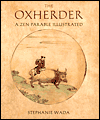
Ox Herder: A Zen Parable Illustrated
by Stephanie Wada, Gen P. Sakamoto, Kuoan Shi Niu Tu Song
Publisher: George Braziller Publishers (ISBN #: 0807615110, Hardcover, 85pp, January 2002)
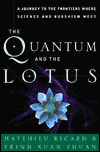
The Quantum and the Lotus: A Journey to the Frontiers Where Science and Buddhism Meet
by Matthieu Ricard, Trinh Xuan Thuan
Publisher: Crown Publishing Group (ISBN #: 0609608541, Hardcover, 320 pp, December 2001)
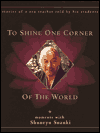
To Shine One Corner of the World: Moments with Shunryu Suzuki
by Students of Shunryu Suzuki, David Chadwick (Editor)
Publisher: Broadway Books (ISBN #: 0767906519, Hardcover, 144pp, March 2001)
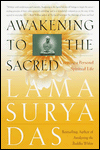
Awakening to the Sacred: Creating a Spiritual Life from Scratch
by Lama Surya Das
Publisher: Broadway Books (ISBN #: 0767902750, Paperback, 400 pp, May 2000)
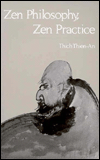
Zen Philosophy, Zen Practice
by Thich Thien An
Publisher: Dharma Publishing (ISBN #: 091354633X, Paperback, 192 pp, November 1989)
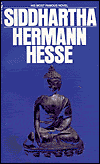
Siddhartha
by Hermann Hesse
Publisher: Bantam (ISBN #: 0553208845, Paperback, 160pp, December 1981)
|
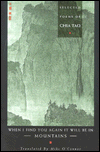 by Chia Tao; Mike O'Connor (translator)
by Chia Tao; Mike O'Connor (translator)
Publisher: Wisdom Publications (ISBN #: 0861711726, Paperback, 224pp, November 1999)
» BUY THIS BOOK
» Submit a review

ZENGUIDE.COM REVIEW - Rating: 4/5
INTRODUCTION
Introduction Chia Tao (779-843) was a Ch'an (Zen) Buddhist monk until the age of thirty-one, when he took the extraordinary step of leaving the Buddhist order. His motives for this are not known, but his poems clearly reßect a life-long reverence for Buddhism. It is probable, however, that Chia Tao's decision had to do with his aspiration to devote himself more fully to the practice of poetry, a practice regarded by many at the time to be incompatible with formal religious life. It can be presumed that he also felt the need for a wider range of experience than monasticism aVorded.
Chia Tao began his secular life in Ch'ang-an (modern-day Sian), the political and cultural capital of the T'ang Dynasty (618-906), where he was welcomed by prominent poets and became a member of a talented literary circle. He had less luck with political life, possibly serving in unspecified government positions in the capital and then, after suVering banishment late in life, in two minor provincial posts. He was always poor and often in bad health, but he stuck to the poetry.
Although Chia Tao put aside his monk's robe and bowl and lived most of his middle years in the capital, he never lost his deep aYnity with the mountains and the "white clouds" of reclusion that he had known in his monastic training days. While a typical Chia Tao poem can be likened to a landscape picture consisting simply of a background of mountains and the presence of a figure at rest or traveling through, his poems altogether can be seen as a long horizontal scroll that, as it slowly unrolls, reveals sacred peaks; snow-bound hermit caves and temples; Ch'an masters and monks; Taoist immortals under pines; unending clouds; recluses in forest huts beside waterfalls or racing streams; pilgrims in tiny boats at sea or on canals; exiles on broad river plains, dusty roads, and at deserted inns; and nondescript sages in cloistered city abodes—from one end of China to the other. This "scroll" of miniature scenes and vast spaces quietly unfolds before us a world of highly unworldly human beings, whose spiritual work collectively brought forth a great religious age.
Chia Tao was born in Fan-yang (near today's Beijing) in 779. Twenty-four years earlier, the An Lu-shan rebellion had begun a warring and socially tumultuous period that all but ended one of the most culturally celebrated and economically prosperous reigns in the history of China. An Lu-shan, a powerful frontier commander, made war on the court and House of T'ang, and Emperor Hsuan-tsung (735-755), a generous patron of the arts, was ultimately forced by the rebels to abandon the capital at Ch'ang-an.
In 763, with a change in fortune resulting in the overthrow of An Lu-shan, who was murdered in a plot instigated by his son, a nominal restoration of T'ang power was brought about. But though the dynasty would continue for more than a hundred years, it was never able to reassert control over a number of resource-rich provinces.
The post-rebellion T'ang reign was also mired in financial problems and unable to match the cultural opulence of Emperor Hsuan-tsung's reign. In the opinion of historians, the turmoil of the rebellion and its strained aftermathÑat times resembling conditions in China's period of feudal warlordsÑcreated a discontinuity between the celebrated culture of the High T'ang and that of the Middle and Late T'ang.
The period brought great suVering to millions of people, costing a staggering number of lives, and costing others their homes or their way of life. The turmoil did not spare China's greatest poets. Li Po (701-762), for instance, became ensnared in one of the many intrigues to establish an administration at Nanking. He subsequently defected, but was nonetheless arrested and jailed for several months before being sent into exile in Chiang-nan, that miasmic land south of the Yangtze River. Tu Fu (712-770) persisted for some time in seeking a position in the capital, but after failing repeatedly, retired to Cheng-tu in Szechuan. He died with his heart still set on returning to Ch'ang-an, his home and the center of poetry. Finally, the great painter and poet Wang Wei (700-761) was nearly executed for treason.
Chia Tao came of age as the end of the eighth century drew near. Though the empire was still struggling to right itself, it was a comparatively peaceful time and one in which BuddhismÑespecially Ch'an BuddhismÑwas ßourishing. Like poetry in many historical respects, Buddhism in China also reached an apogee around the time of Hsuan-tsung's reign. This golden age of Buddhism was highlighted by the ßowering of Ch'an, a convergence of Buddhism and Taoism that had been developing for the several centuries since the arrival from India of Bodhidharma in the late fifth century....
SEEKING BUT NOT FINDING THE RECLUSE
Under pines I ask the boy;
he says: "My master's gone to gather herbs.
I only know he's on this mountain,
but the clouds are too deep to know where."
WRITTEN AT THE DWELLING OF A RECLUSE
Even though you have a brushwood door, it hasn't been shut for a long time;
a few clouds, a few trees have been your only companions.
Still, I suspect if you stay longer, people will learn of this spot;
we'll see you moving higher on the mountain.
SEEING OFF A MAN OF THE TAO
When I find you again, it will be in mountains; this morning, I lose you once more to farewell.
Free of attachment in heart and mindÑ is it why you can go ten thousand li alone
to places with such little human warmth, where, when you meet someone, they speak an ancient tongue?
Traveling without disciples, you have only a white dog for company.
FOR A BUDDHIST MONK
In a tangle of mountains, in autumn trees, a caveÑ hidden within, a magic dragon pearl.
Poplar and cassia overlook a blue sea; rare fragrances waft from a stone pagoda.
A monk since youth, you still have no white hair; you enter upon meditation, in a frost-streaked robe.
Here there is no talk of the world's aVairsÑ those matters that make wild the hearts of men.
AUTUMN DUSK
I didn't realize that at North Gate, willow leaves already whirl and fall.
Because approaching water, I happen on a crane; meet a monk, unexpectedly this side of the clouds.
Your white beard stands out when we're side by side; hidden tears make two separate streaks.
Not a thing to say after all those days and nights of emptiness. Who enjoys hearing these sad songs?
SUBMIT YOUR BOOK FOR REVIEW
If you would like to have your book reviewed by Zen Guide, please send a copy of your book to:
Chon Tri - Book Review
1328 Peachtree Court
Frederick, MD 21703
USA
|















 ZEN ELEMENTS
ZEN ELEMENTS






